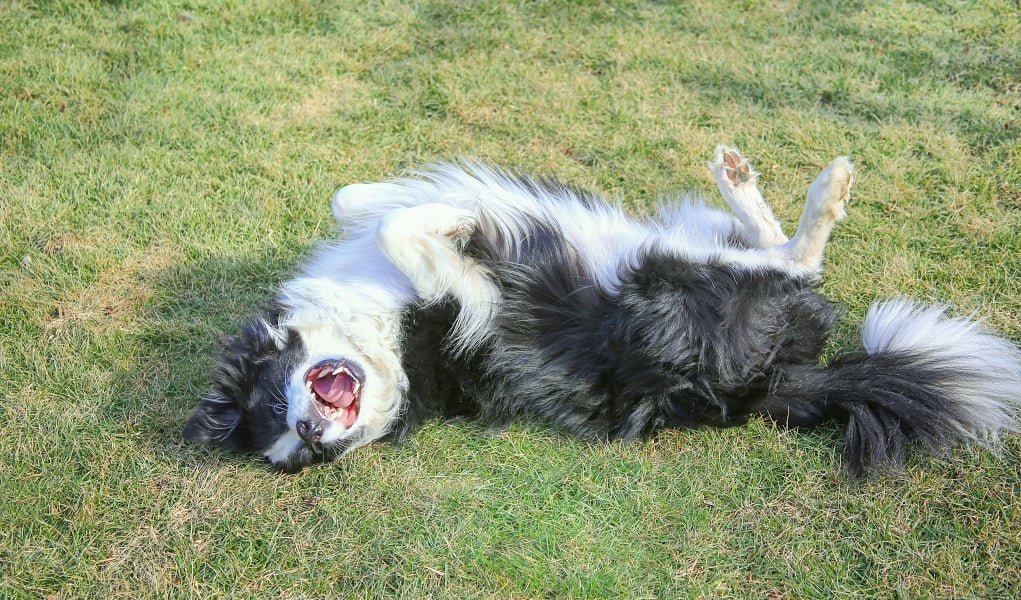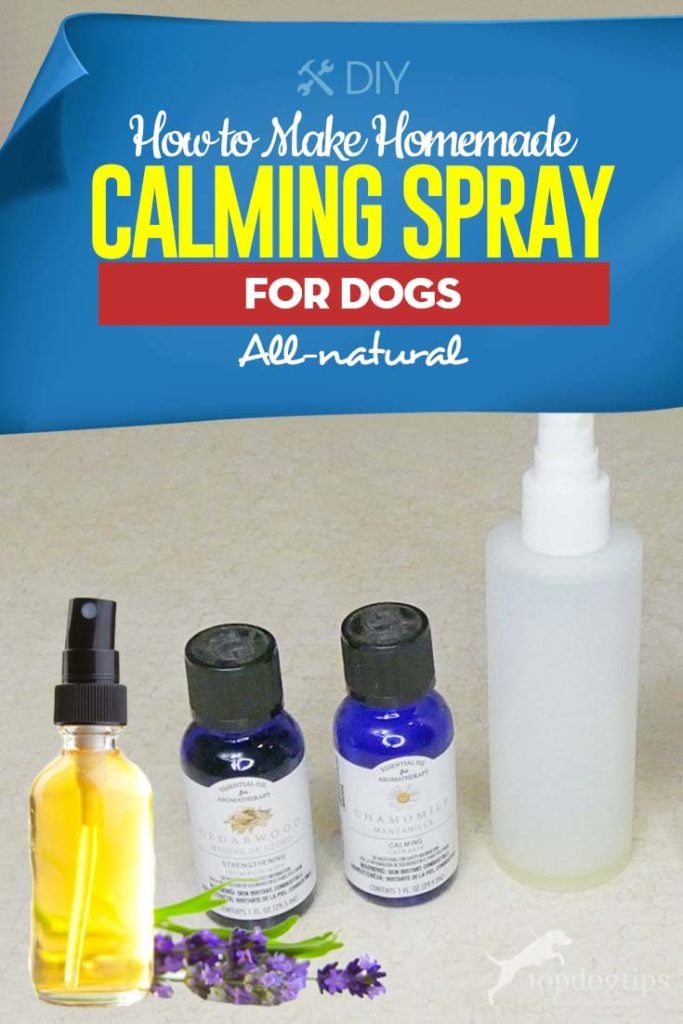Table of Contents
Puppies and young adult dogs are known for having too much energy.
Some breeds are also known to be more high strung than others. Then, dogs with anxiety will usually need help with calming.
If you don't want to use commercial products, this homemade calming spray for dogs is natural and safe to use on dogs.
From hyperactivity to stress and anxiety, the need to calm a dog is common among pet owners.
Hyperactive and/or anxious dogs are easily stimulated and stay stimulated even after the excitement has passed.
There are multiple types of anxiety in dogs and their causes. For most treatments, you need to know what triggers anxiety in your pet.
Over the years, I've found that for mild cases, this natural homemade dog calming remedy I'm sharing works today to calm dogs; however, for more severe stress and hyperactivity cases, you'll need something stronger.
How to Make Homemade Calming Spray for Dogs
1. Get the Supplies
This is a quick and simple recipe that can also be adjusted with several different ingredients.
I always keep this spray on hand, especially during holidays and bad weather.
Here's what you'll need to make this homemade spray:
- Spray bottle ($17 for 2 bottles)
- Lavender essential oil ($21.50 for 4 fl oz)
- Chamomile essential oil ($15 for 1 fl oz)
I'm using lavender and chamomile because they are natural calming agents, and me and my dogs also like their scent.
However, you can use other oils, such as sweet marjoram, frankincense, cedar, ylang ylang, or clary sage.
2. Homemade Dog Calming Spray Recipe
After you've purchased the supplies, you can make this calm spray for dogs recipe, and it will last you for a while.
I recommend buying a 4-6 fl. oz bottle similar to the one I linked to above.
For the mixture, I prefer to use undiluted lavender essential oil (Majestic Pure is my favorite brand) and undiluted chamomile essential oil (Artizen).
Fill the spray bottle with water and add 6 drops of lavender essential oil and 6 drops of chamomile essential oil into the bottle.
Shake the mixture well before every use.
Do not spray it directly on your dog. Instead, you can spray it in your car or around your home. It is also safe to use around children.
If you have a particularly anxious or hyper dog, try spraying it on the dog's bedding or his favorite blanket.
3. Buy Only High Quality Oils
Be sure to buy high quality oils from recognized brands, and make sure it says “undiluted” on the label. Cheaper oils are not as powerful, and will not have the same effect on you or your pet. This is especially true when it comes to essential oils.
Typically, cheap essential oils have been diluted or altered. This means they are not pure essential oil directly from the plant.
These oils will not be as effective (if at all), and they could also be dangerous to you or your dog.
4. Be Careful Around Cats
Cats do not metabolize things the same way humans or dogs do. A cats liver is different than ours. For this reason, their bodies cannot metabolize (or break down) certain compounds, including essential oils.
If you have a multi-pet household that includes dogs and cats, I recommend avoiding this homemade calming dog spray. Or at the very least, be sure to do diligent research before using any kind of essential oils in your home.
5. Do Not Apply It Directly to Your Dog's Skin or Coat
Essential oils that have not been diluted will be much too strong for your dog. Think of how strong these oils smell to you.
Your dog's sense of smell is hundreds of times stronger than yours, so imagine how powerful the aroma is to him.
Directly applying essential oils to the dog's skin or coat may also irritate their skin and cause side effects.
If you're applying an essential oil, you'll need to dilute it with a carrier oil. Or, as in this case, create an aromatherapy spray by adding the oils to water and also spraying around the dog.
Homemade Calming Spray For Dogs: Final Thoughts
There you have it! Now you know how to make your how DIY calming spray for dogs.
Like I said, this calm spray for dogs is only for mild cases of hyperactivity. You'll need to reach out to your veterinarian for more severe debilitating cases.
Your dog will likely need to be put on medications if need be.
READ NEXT: 10 Essential Home Remedies for Dogs to Have At Home
Disclosure: We may earn affiliate commissions at no cost to you from the links on this page. This did not affect our assessment of products. Read more here and find full disclosure here.














